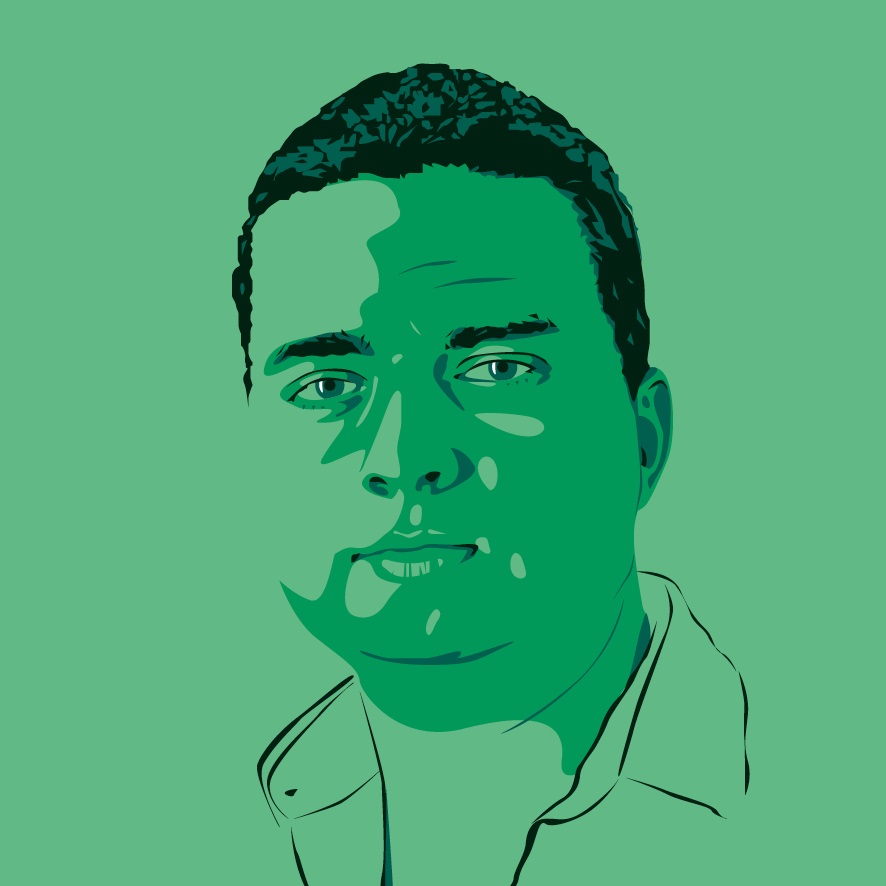The Witcher 3 preview: how to build an RPG with 36 endings
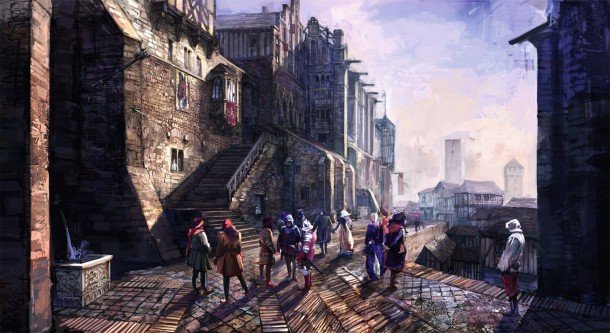
Ideas for The Witcher 3's quests come from both the writing team and quest designers, who can butt heads on whether an idea is workable or not. “On the one hand it's nice to have as many different paths and different possibilities as possible, but on the other you have to keep in mind that you have to implement it, think of consequences within the constraints of the budget,” says Szamalek. “The bigger challenge is we think differently about how we tell stories and about the narrative, and I think we concentrate more on the experience and providing the player with something that's unforgettable or exciting. The quest team has a slightly different perspective, because they're the ones who eventually have to make things happen.”
How do the quest team see the relationship from their side? “It can be rough at times because we have to discuss those things over and over with them,” says Mateusz Tomaszkiewicz. “It differs on specific cases – sometimes the input comes from them, so they give us very broad scenarios of what's going to happen, and we're supposed to add those details and design it in a way that will fit the game, that you can actually implement it. They're writers. They don't, at times, understand what you can and can't do in a game, so we have to do that.”
That feedback between the teams works both ways. “We also design from scratch and talk it through with the storytelling guys so they know what's in there,” Mateusz says. “They have to give us opinion on if they are able write good dialogue for that, if they see potential in this quest.”
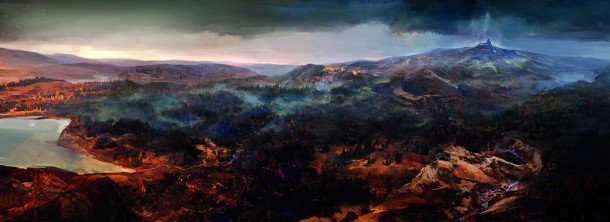
That back and forth is something all agree is healthier for the creation of The Witcher 3. “I think they structure the stories in a slightly different manner and think about the story as a series of logical events that have to tie in together, and I think we're slightly less systematic in our approach,” says Szamalek. “That would be the biggest difference, but working together, it works out for the best in the end.”
The writing team's remit is to avoid a repetitive quest structure or a branching narrative where the outcome can be pre-empted – Szamalek explains how some quests will trick the player into making a seemingly good or bad choice, then be shocked at the consequences. But it's a trick they try not to repeat. “We wouldn't like the player to figure out how we do things after doing several quests. So in each quest, no matter how small, we're trying to come up with something surprising and original. Of course, sometimes, we make you feel that you suspect there's a good and bad option, but there's a twist where it turns out you were wrong. I don't think we abuse it – so it's not like we're teasing the player each time there's a choice to make.”
Then there's the scary but exciting notion of the game's 36 endings. At the time of my interview, work on each unique finale is ongoing – and the team obviously have their preferences over how they'd like Geralt's story to come to an end. “I think I had an influence over a fair share [of endings],” Szamalek says, “and I've spent the last few weeks working on that part of the game. And of course I do have my own favourites – when the game comes out I will definitely be shaping it in a particular way.”
I ask Mateusz if some endings require more work than others. “Yeah, I say they do... I can tell you that some endings were easier for us to design, there are some that were tougher, but all of them took us a huge amount of time.” This is a world where an action in one town can affect another, where the humans in settlements can eventually end up dead. CD Projekt Red will keep tweaking the outcomes up until release. Keeping consistency over so many variables is an ongoing challenge. “It's really easy to outrage fans with endings they won't like.”
Keep up to date with the most important stories and the best deals, as picked by the PC Gamer team.
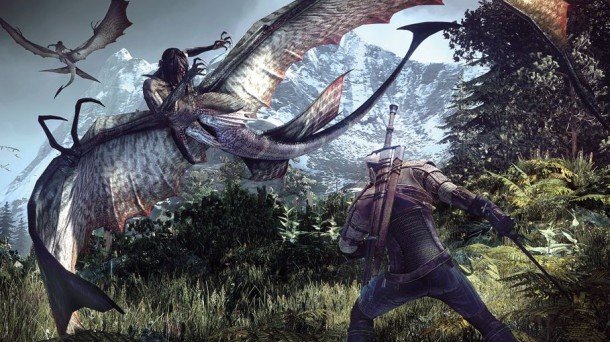
The beginning and end of The Witcher 3 provide a similar challenge, according to Mateusz. “I think they're the most difficult parts to create... The beginning has to make you interested in the entire game, and the ending is important because you can't leave the player disappointed.” Konrad Tomaszkiewicz agrees. “I think we redid the beginning of The Witcher six or seven times, and The Witcher 2 four or five times.”
There's a lot of mythology to relay from the last two games, but they're hoping to circumvent some of The Witcher 2's storytelling weaknesses. “We know in The Witcher 2 we were criticised for heavy exposition and the fact you get told about a lot of the background, a lot of the context and the lore at the same time, and it might be very overwhelming to players,” says Szamalek. “It might discourage them from delving into it because they might feel like they can't catch up. So that's something we try to change, and I think we succeeded in ensuring you have a smoother introduction to the world and its characters. There are very experienced writers on the team and they're making sure what the newbies do makes sense.”
The increased number of quest designers on The Witcher 3 is indicative of how much CD Projekt Red have had to expand to make a game this big. “When I was here the first time it was 40 people,” Mielniczuk tells me. “I joined the team two years before the release of The Witcher 1. For me the company that has been working on The Witcher 1, 2 and 3 is a totally different company. It's changed so much because of how the studio looks, how many people work here and how the production is organised.”
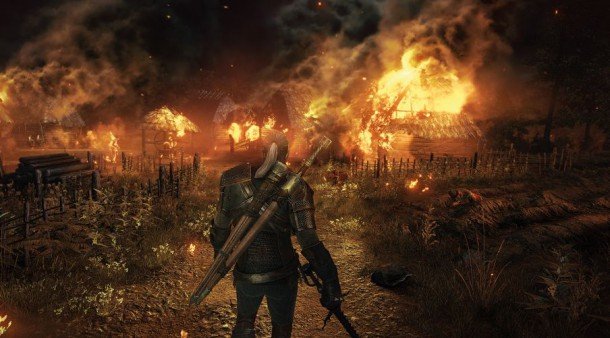
They mention that the studio is now composed of 20% non-Polish developers, compared to just one on The Witcher 2. “We stick to our values, I think,” says Mateusz. “We're not going corporation-style – everyone is friendly to each other, everyone has a say in the designing process still. But of course it's a much bigger team than it was, and there has to be some changes made.”
The game has captured attention in what has been a fairly quiet time for big singleplayer RPGs. For the audience who have witnessed The Witcher's curious transformation from early roughness to a potential genre leader, seeing out Geralt's story in such a lavish and maybe even groundbreaking fashion will be a reward in itself. In the continuing absence of a non-MMO Fallout/Elder Scrolls game, and while Dragon Age: Inquisition is still a way off, this is CD Projekt Red's opportunity to shine.
“We want to create games for really mature players,” Szamalek tells me. “These aren't games for everyone... We have particular ambitions about what we want to achieve. The games that we make have a complex story you have to work a bit to fully grasp, and I think avoiding bad and good options is also a part of addressing and catering for this large audience, which demands the same treatment they'd get from movies or books.
